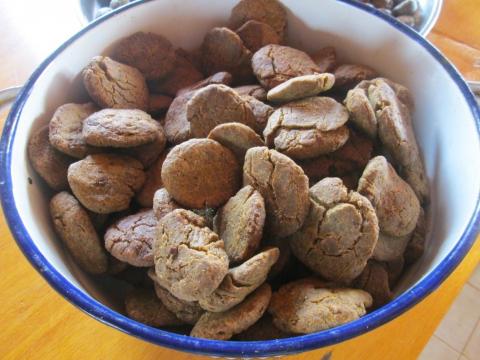Moringa Improves Livelihoods and Nutrition in Niger

In 2012, World Vision Niger Livelihood and Food Security program started a four-year project on the transformation of moringa. As part of the project the team in Tahoua organized a training of trainers (TOT) in 2014 on the various techniques of processing moringa leaves and seeds for 20 women.
Moringa leaves are part of local diet in Niger. The main objective of the training is to teach women how to diversify it use and sell it to sustain their families. From 2012 to 2013, the women were trained on how to plant moringa trees. By last year, the trees were matured and had produced good leaves, so the team was able to start moringa transformation sessions.
The women who participate in the training were either proposed by the community women’s group or are interested and willing to learn. The 20 women trained are expected to train their peers. Ramatou Saidou was one of the lucky women that got trained. After participating in moringa transformation training organized by World Vision Niger in 2014, Ramatou’s life has changed
“But today, thanks to this training I support my family without even waiting for my husband to send money."
“My name is Ramatou Saidou, am 42 years old mother of six children and I live in Tchinkaki village (11km away from the town of Tahoua). Before the training I use to prepare moringa with peanut paste, tomato and onion to give to the children. This is the common way we eat moringa. At the time I could never imagine that moringa can be use in so many different ways,” she says. “But today, thanks to this training I support my family without even waiting for my husband to send money. This activity is a blessing to me because I can earn between a 1000 to 1500 cfa (2.00 to 3.00 US dollars) per day through the sale of moringa biscuit and powder but when I sell the oil, I can earn up to 90.000cfa (165.00 US dollars). I also learn that moringa is a remedy that can cure diseases such as diabetes and ulcer. Mothers with malnourished children come often to buy moringa powder.”
Ramatou explains how to prepare moringa biscuit and oil.
“To prepare the biscuit, you need to have 250g moringa powder 1kg of wheat flour, 100g sugar, 100g butter. Mixing the ingredients and dividing the dough into small balls. Use your hands to flatten them and fried them. My children really love the biscuit.
“To prepare the moringa oil, first you dissect the seeds, after you pound and sift them to get a flour. When you have the flour you continue to pound it, but this time you will add a small quantity of hot water and till you get oil.
“I hope my instructions can help other women to transform moringa leaves and seeds for the benefit of their families,” Ramatou says smiling.
Given the fact the Niger is a country known to be influenced by natural disasters such as flood and food insecurity, World Vision made a strategic decision to focus on resilience in 2013. Today the food security and resilience programme continues to improve the life of rural communities through its intervention by first acting on the root causes of food insecurity. All the activities are undertaken through a dynamic team of development facilitators which are focusing on improving food production and helping communities to have access to food and be able to utilise it throughout the year. This year World Vision is planning to train more women like Ramatou.